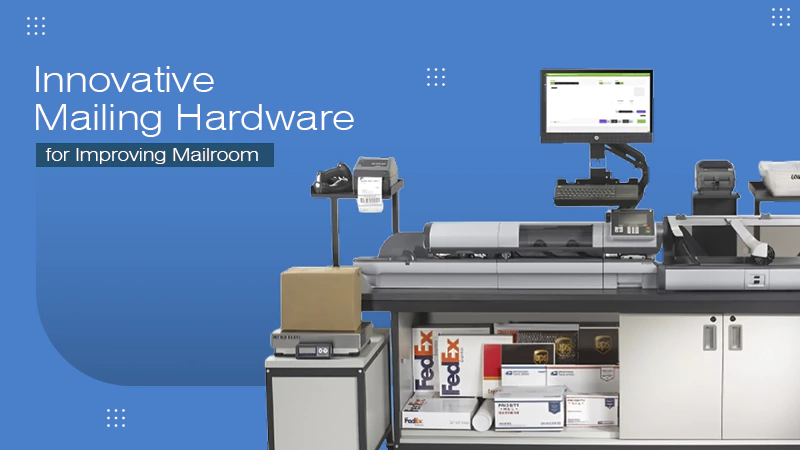If your phone displays an unfamiliar area code, multiple zeros, or a sequence of random digits, it’s likely to be a VoIP call.
Ways VoIP Can Streamline Your Communication Processes

KEY TAKEAWAYS
- Understand how VoIP centralizes communication on a unified platform
- Learn how VoIP increases scalability and reduces communication costs
- Understand its seamless integration and enhanced call management
- Learn about its mobility, flexibility, and security
Are you running a business? Or a part of an organization that wants to streamline its communication, reduce costs, and enhance productivity? If yes, then I have some good news for you. One game-changing technology is emerging in the business market, and that is Voice Over Internet Protocol (VoIP).
VoIP has become an inseparable tool for companies of all sizes, and the best part of this technology is that it does not have limitations like traditional phone systems. Also, it offers a range of benefits that traditional ones simply can’t match.
Let’s learn more about how VoIP streamlines the communication process.
Centralized Communication On a Unified Platform
One of the most popular strengths of VoIP is its ability to integrate with other communication channels, like email, instant messaging, and voicemail, and create a unified communication platform.
Now, this integration simplifies communication and eliminates the need for separate systems. This thing simply makes it easy for employees to manage and respond across different platforms.
Easy Scalability For Growing Teams
Okay, here the simple math is that as businesses expand, their communication needs grow. But the problem with the traditional phone system is that it often struggles to scale without costly upgrades, and it also takes a lot of time to install.
On the other hand, we have VoIP, which is highly scalable. It allows businesses to easily add or remove phone lines as their needs change.
This type of flexibility provides great benefit to the business or organizations that are slowly growing or to those whose communication faces more traffic according to different seasons. With the right Business-Grade VoIP Options, your system can grow as your business does.
Reduced Communication Costs
Organizations that are using legacy phone service typically pay monthly fees based on the number of active phone lines assigned to their business. Each PRI routing call through a PBX can support 23 calls and one data channel at the same time.
VoIP for business eliminates the need to maintain in-house PBX boxes and desk phones, which eventually saves on the investment. For growing businesses, these savings can be a great benefit.
The scalability of VoIP ensures that adding new users or lines is cost-effective and hassle-free.
Enhanced Call Management Features
VoIP for business is full of advanced features that improve call management and customer service capabilities. VoIP advanced features provide call forwarding, call transferring, call waiting, and auto attendants.
These advanced features are great for handling incoming calls and ensuring that they are directed to the right person or department.
The best part about this is that they are not limited to large enterprises or organizations, but even small businesses can take advantage of powerful VoIP call management tools through affordable VoIP packages. Also, here are some features of VoIP that small businesses rely on:

Seamless Integration With Business Applications
Another popular advantage of VoIP is integrating with other business applications. So the thing is, VoIP phones can integrate with other business applications, such as customer relationship management (CRM) systems, which allows seamless data sharing and enhances productivity. For example, when a call comes in, the system can automatically pull up relevant customer information from the CRM.
This integration actually enhances the workflow by allowing users to access communication features directly within the application they already use, streamlining the process and improving productivity.
Greater Mobility And Flexibility
VoIP offers mobility features that allow employees to stay connected and accessible when they are away from their desks. VoIP also has features like mobile apps and softphones, and employees can make and receive calls using their smartphones and laptops. As a result, they never miss any important call or message.
VoIP enables on-the-go communication, which is increasingly important in today’s flexible work environment.
Improved Security And Reliability

Nowadays, businesses are increasingly relying on digital communication, which is why security is becoming an important concern. The advanced features of VoIP provide better security than traditional phone systems:
- Encryption: VoIP calls can be encrypted, making them a safe option.
- User Authentication: Advanced authentication methods can be implemented to ensure only authorized users can access the system.
- Regular Security Updates: VoIP can quickly roll out security updates to take action against threats.
- Compliance: Many VoIP business solutions are made to meet industry-specific compliance requirements.
Conclusion
Implementing a VoIP system can significantly improve the communication elements in the company. It brings enhanced communication capabilities to businesses, enabling them to communicate effectively.
By using VoIP advanced features and functionality, businesses can streamline their communication process, reduce costs, and improve collaboration. All these things lead to better business outcomes.
Frequently Asked Questions
How can you tell if someone is using VoIP?
Can we track VoIP calls?
It can be traced and monitored, but it requires technical expertise.
Can VoIP send text messages?
Yes, with VoIP, you can send or receive text with devices not traditionally associated with SMS.
What is the best VoIP phone service?
There are many amazing VoIP services available in the market, such as Zoom Phone, RingCentral, Dialpad, etc.
Would you want to know what poses the greatest threat to all of the information stored on your mobile device?…
Removable storage devices are small and delicate gadgets that keep all your best memories stored in them. This is why…
Huge user counts and millions of interactions, this illusion of great big numbers attracts more users to a platform. According…
Seeing an orange spot on MacBook screens is unsettling, but not every spot means damage. Sometimes it’s just Apple’s software…
FinTech and rewards go together. However, in FinTech, rewards are not just marketing tools. They sit right next to regulated…
Digital payments are evolving at a rapid pace. From every small enterprise seller to huge e-commerce platforms, digital payments have…
Most enterprise software still being used in the corporate world was developed years ago. According to Stefanini’s industry analysis, 60%…
The digital landscape is evolving every day; the competition is rising with the increase in the number of clients. So…
Traditional office mailrooms were slow and manual postal hubs. Businesses that still have that treat the entire area as a…





